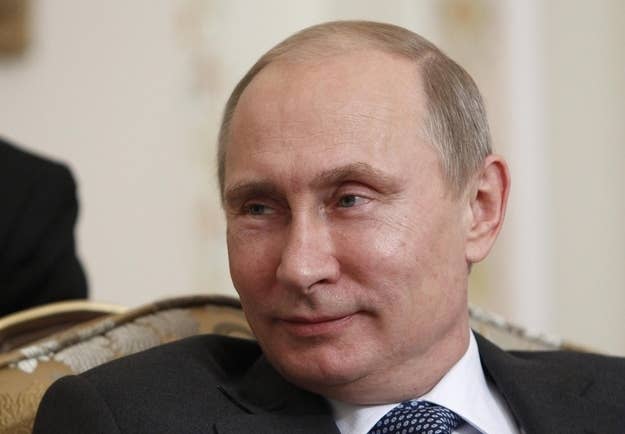
WASHINGTON — The current focus on Russian President Vladimir Putin's involvement in the international debate over Syria has turned some of the attention away from his country's own increasingly anti-LGBT environment. As three events in the past 24 hours show, however, Putin's LGBT problem isn't going away — and his leadership role on Syria has the potential to raise the LGBT issues to an even more prominent place on the global stage.
First, Putin penned an op-ed in The New York Times. Focused on Syria, the United Nations, and Russia-U.S. differences over how to address the alleged use of chemical weapons in Syria, the op-ed did not raise LGBT issues.
Focusing on international norms, Putin wrote, "The United Nations' founders understood that decisions affecting war and peace should happen only by consensus, and with America's consent the veto by Security Council permanent members was enshrined in the United Nations Charter."
His ending, however, set him and his country up for a response from LGBT advocates and allies within and outside its borders. "We are all different, but when we ask for the Lord's blessings, we must not forget that God created us equal," he wrote.
Then, House Minority Leader Nancy Pelosi — not the only person, but one of the highest-ranking U.S. government officials to make the connection explicit — called out the perceived hypocrisy of Putin's statement.
"He says when we pray to God he judges us all as — I don't know exactly was his words are — but he says that we are all God's children," she told reporters Thursday. "I think that's great. I hope it applies to gays and lesbians in Russia as well."
Pelosi's reference to Russia's anti-LGBT propaganda law — which his government has maintained is aimed at protecting minors — was noted across Twitter throughout the afternoon. Her decision, and the reaction, suggested that Putin's own decision to raise his global profile in the Syria debate could make him a more direct target for questions about the country's treatment of its LGBT citizens. The coming Winter Olympics in Sochi guarantee the wait on such questions won't be long.
Finally, as Americans were discussing the implications of his NYT op-ed, his own government, through its media oversight body, issued a warning to a popular TV station over its airing of a French musical with gay themes. The movie shows two men making out and contains what would be termed "implied" sexual activity between the two, and the oversight body decided the movie contained "propaganda of nontraditional sexual relations."
The decision to warn a TV station that it violated the propaganda law to show a movie that includes gay themes and gay characters doing the same things that opposite-sex couples are free to do is evidence that the law will be enforced as broadly as its opponents have suggested it could be enforced. The Russian government says the law is violated whenever a public depiction or discussion of LGBT people is made in a way that paints those people in a positive light.
With Putin working hard to make himself a bigger figure on the global stage — and relying on claims about international norms to do so — he is quickly going to be faced with questions about his own adherence to those norms as his country readies the Olympic Village in Sochi and ramps up enforcement of laws that are becoming increasingly outside of those norms.
